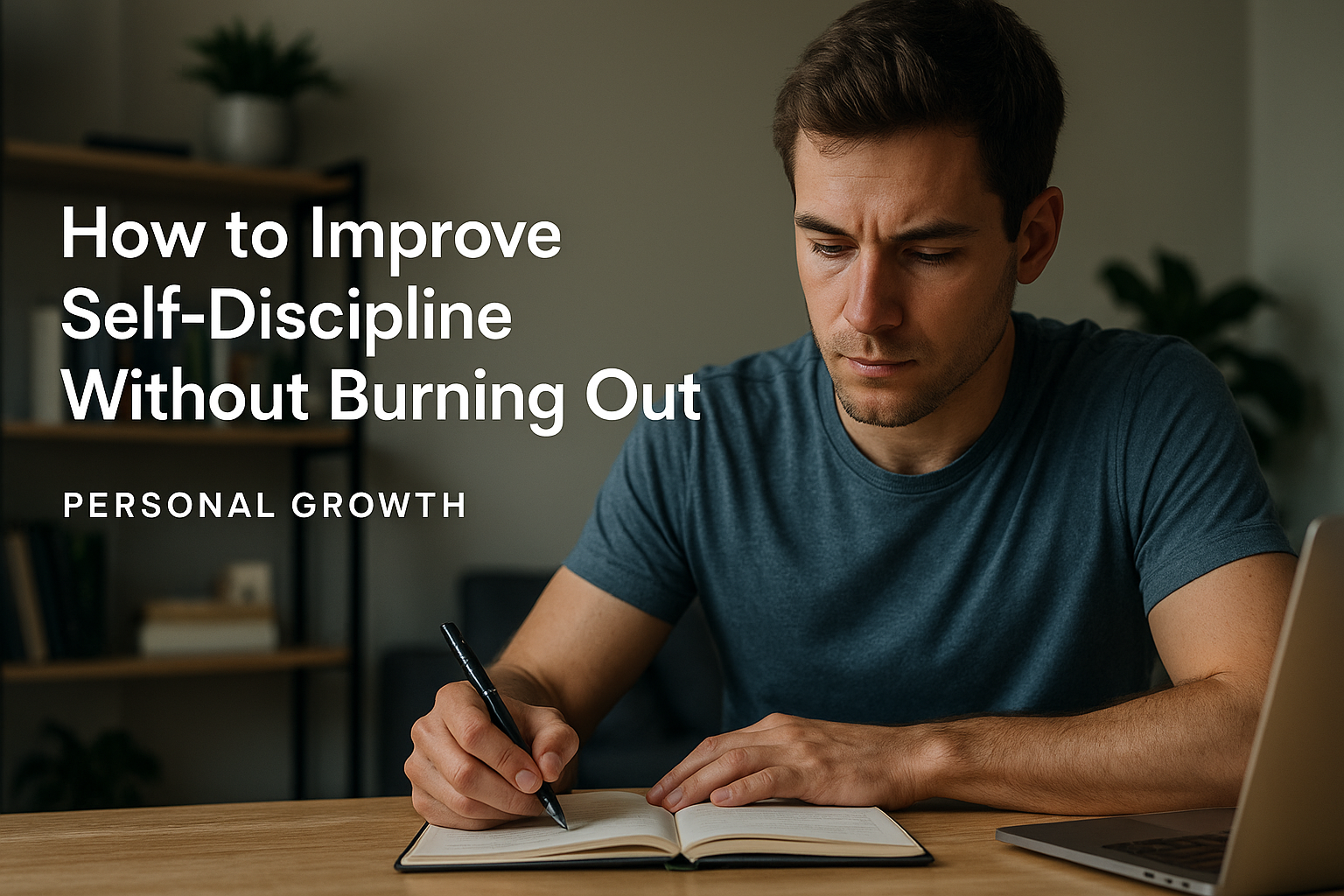Self-discipline is one of the most powerful traits you can build. It helps you stay on track with your goals, resist distractions, and take action even when motivation is low. But many people confuse discipline with self-punishment—and end up overwhelmed or burned out.
The truth is: discipline isn’t about willpower or perfection. It’s about designing your life in a way that makes progress sustainable.
In this article, you’ll learn how to build strong self-discipline without sacrificing your well-being.
What Is Self-Discipline (Really)?
Self-discipline is the ability to do what needs to be done—even when it’s uncomfortable, inconvenient, or not immediately rewarding.
It’s not about:
- Being rigid or controlling
- Forcing yourself to work 24/7
- Shaming yourself into action
It’s about:
- Choosing long-term gain over short-term ease
- Sticking to your values and priorities
- Creating systems that reduce temptation and decision fatigue
1. Start Small and Stay Consistent
Don’t try to overhaul your life in one weekend. Start with tiny, manageable commitments you can repeat daily.
Examples:
- Write for 5 minutes
- Walk for 10 minutes
- Turn off screens 30 minutes before bed
- Say “no” once per day to a distraction
Small wins build trust with yourself—and momentum.
2. Focus on the Why, Not Just the What
Self-discipline loses energy when it feels like empty effort. Always connect your actions to a purpose.
Ask:
- Why does this habit matter to me?
- What will staying disciplined help me build or protect?
- Who do I become if I keep showing up?
Purpose fuels perseverance.
3. Reduce Friction in Your Environment
Discipline becomes easier when you remove obstacles and temptations.
Try:
- Placing your phone in another room while working
- Prepping your meals or outfits the night before
- Using website blockers (like Cold Turkey or Freedom)
- Keeping your workspace organized and minimal
Discipline is easier when distractions are out of sight.
4. Set Clear Boundaries (With Yourself and Others)
Discipline also means protecting your time, energy, and focus.
Set rules like:
- “I don’t work past 7 p.m.”
- “I check social media only after lunch.”
- “I schedule 1 rest day per week.”
These boundaries aren’t restrictions—they’re systems for freedom and energy.
5. Forgive Yourself for Slipping
You will mess up. You’ll skip days. You’ll get tired. That’s normal.
The difference between self-discipline and self-destruction is how you respond.
Say:
- “I slipped—but I can restart today.”
- “One bad day doesn’t erase progress.”
- “What caused the slip, and how can I prevent it next time?”
Self-compassion builds long-term consistency.
6. Use Accountability and Tracking
We stay more disciplined when we’re being observed—even by ourselves.
Try:
- Keeping a habit tracker
- Writing down your daily wins
- Sharing your goals with a trusted friend
- Setting regular check-ins with yourself
Tracking shows progress—even when you don’t feel it.
7. Mix Structure With Flexibility
Too much structure can backfire. Instead, design discipline with space for real life.
Tips:
- Build buffer time into your schedule
- Create “minimum versions” of your habits for low-energy days
- Take guilt-free breaks when you need rest
- Reevaluate your system monthly
Discipline is not about doing everything—it’s about doing what matters, consistently.
Final Thought: Discipline Is a Lifestyle, Not a Punishment
You don’t need to be perfect—you just need to be committed.
Real self-discipline isn’t loud. It’s quiet, steady, and self-respecting. It’s the daily choice to show up for yourself—even when it’s inconvenient.
Start small. Stay kind. Build systems. Be honest. Show up.
That’s how discipline becomes who you are.

